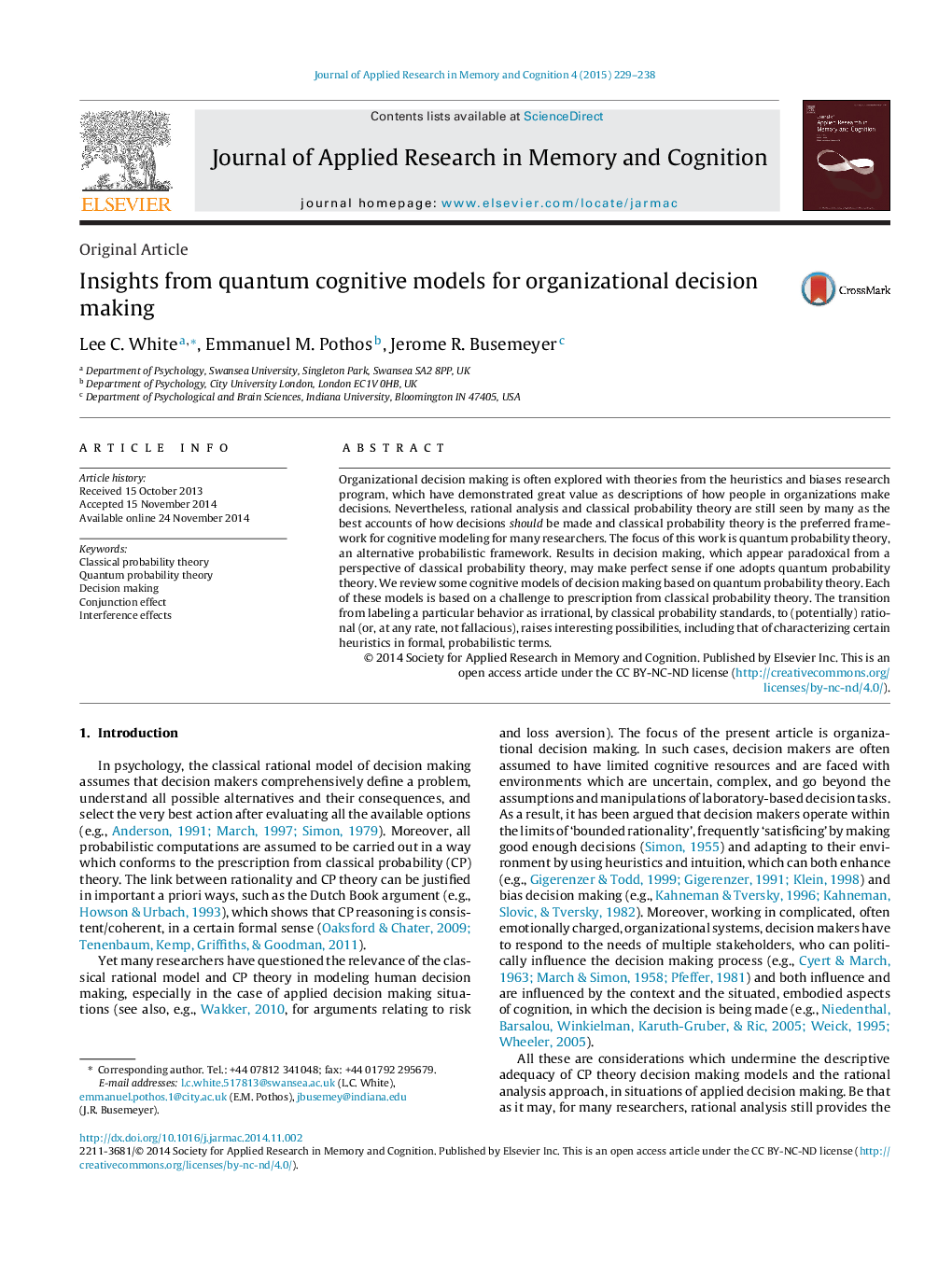| Article ID | Journal | Published Year | Pages | File Type |
|---|---|---|---|---|
| 881617 | Journal of Applied Research in Memory and Cognition | 2015 | 10 Pages |
Organizational decision making is often explored with theories from the heuristics and biases research program, which have demonstrated great value as descriptions of how people in organizations make decisions. Nevertheless, rational analysis and classical probability theory are still seen by many as the best accounts of how decisions should be made and classical probability theory is the preferred framework for cognitive modeling for many researchers. The focus of this work is quantum probability theory, an alternative probabilistic framework. Results in decision making, which appear paradoxical from a perspective of classical probability theory, may make perfect sense if one adopts quantum probability theory. We review some cognitive models of decision making based on quantum probability theory. Each of these models is based on a challenge to prescription from classical probability theory. The transition from labeling a particular behavior as irrational, by classical probability standards, to (potentially) rational (or, at any rate, not fallacious), raises interesting possibilities, including that of characterizing certain heuristics in formal, probabilistic terms.
